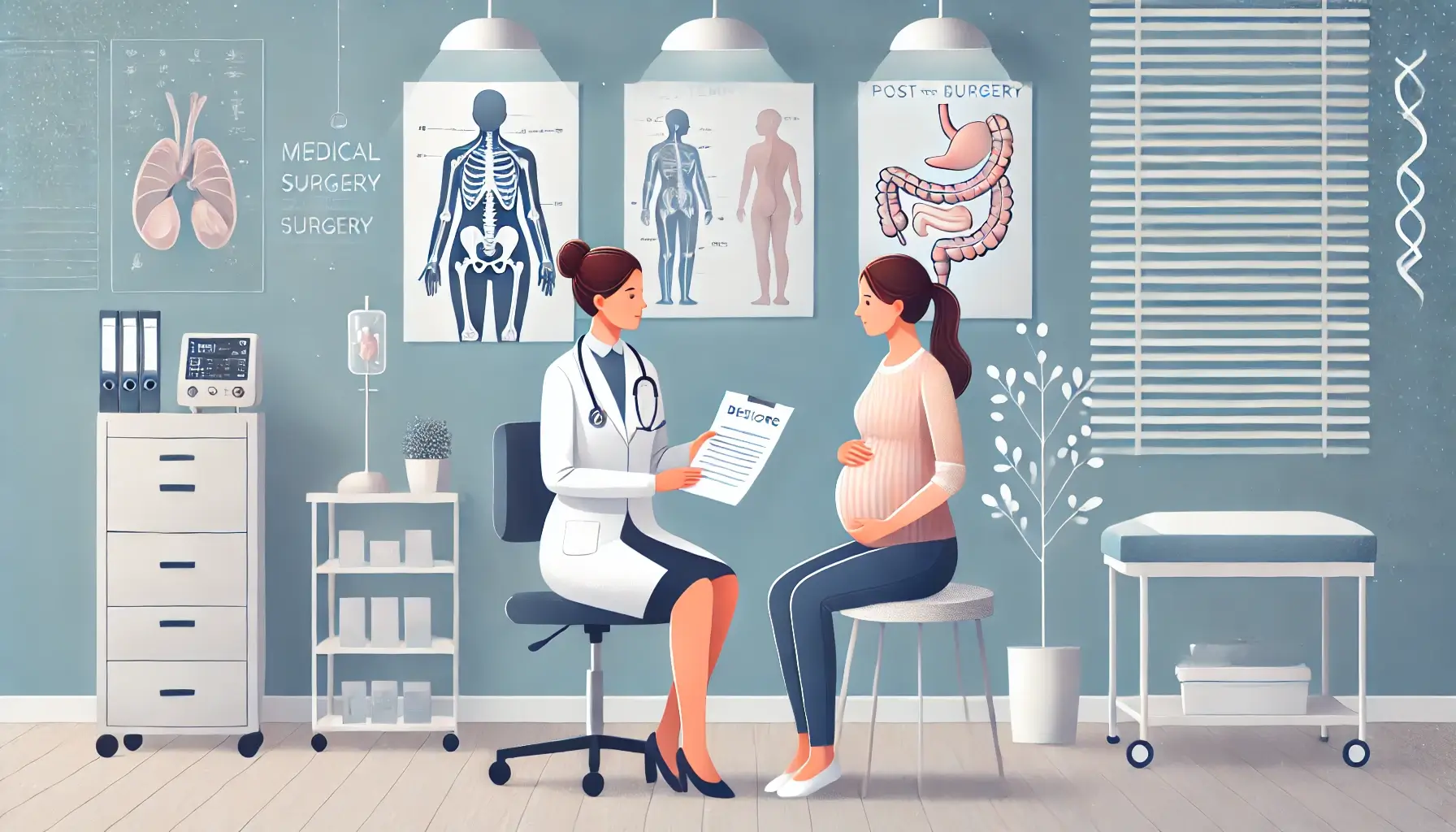I. Introduction
A. The importance of emotional well-being during a medical crisis
Medical crises, irrespective of their nature, bring about significant changes and challenges that can affect an individual’s physical health and also their emotional well-being. Emotional well-being, while often overlooked in the face of physical ailments, is equally crucial to recovery and overall health. It is well-established within the medical community that emotional health significantly influences how we manage and recover from illness. Stress, anxiety, and other emotional factors can exacerbate physical symptoms, impair the immune response, and potentially even prolong recovery times. Therefore, neglecting emotional well-being can lead to a vicious cycle of deteriorating physical and emotional health.
B. Introducing the article’s main aim: provide tips and techniques for emotional self-care
Given the pivotal role of emotional health during a medical crisis, this article aims to provide practical tips and techniques to help individuals navigate through this challenging time. We’ll explore strategies to identify emotional needs, effective coping mechanisms, ways to build resilience, and methods to foster open communication about emotional health. By understanding and implementing these techniques, individuals facing a medical crisis can better manage their emotional well-being, contributing positively to their overall healing process.
II. Understanding the Emotional Impact of a Medical Crisis
A. The connection between physical and emotional health
Emotional and physical health are deeply intertwined. The mind-body connection, a fundamental concept in medicine, acknowledges that emotional, mental, social, spiritual, and behavioral factors can directly affect physical health. For instance, chronic stress or anxiety can lead to a range of physical symptoms such as headaches, sleep disorders, and even increased susceptibility to infections. Conversely, chronic illnesses or acute medical crises can significantly impact mental and emotional health, leading to conditions such as anxiety, depression, or post-traumatic stress disorder. Understanding this interplay is crucial in ensuring holistic care during a medical crisis.
B. Common emotional responses to a medical crisis
During a medical crisis, it is common to experience a wide range of emotions. Shock, fear, and disbelief often follow the initial diagnosis. Individuals may feel anxious or depressed, grappling with uncertainty about their health or the future. Anger, frustration, or sadness can arise from changes in lifestyle, loss of independence, or physical discomfort. It’s also common to feel isolated or misunderstood, as the experience of illness can be very personal and often difficult for others to fully comprehend. Recognizing these emotions as a normal part of the process is the first step towards managing them effectively.
C. The importance of addressing emotional needs
Given the significant impact of emotional health on overall well-being and recovery, addressing emotional needs during a medical crisis is of paramount importance. Unaddressed emotional stress can hinder recovery, impact the quality of life, and possibly contribute to further health complications. Addressing emotional needs not only aids in managing the current crisis but also prepares one to better handle future health challenges. It promotes resilience, fosters stronger relationships with healthcare providers and loved ones, and enhances one’s overall ability to cope, thereby contributing to improved health outcomes.
III. Identifying Your Emotional Needs
A. Recognizing signs of emotional distress
Recognizing emotional distress early can help in managing it effectively and preventing it from escalating into more severe mental health issues. Symptoms of emotional distress can vary widely among individuals but may include persistent feelings of sadness or hopelessness, excessive worry or fear, difficulty concentrating or making decisions, changes in appetite or sleep patterns, withdrawal from social activities, unexplained physical ailments, and feeling overwhelmed or unable to cope.
B. Assessing your support system
Your support system plays a critical role in your emotional well-being during a medical crisis. This includes healthcare providers, family, friends, support groups, or mental health professionals. Assessing your support system involves understanding the resources available to you and identifying any gaps that need to be addressed. It’s important to evaluate whether you feel emotionally supported, understood, and heard by those around you. If you find deficiencies in your support system, consider seeking additional resources such as support groups, counseling services, or mental health professionals.
C. Adapting to your new normal
A medical crisis often brings about significant changes in daily life, requiring you to adapt to a “new normal.” This might involve dealing with physical limitations, adjusting to a new routine of medical treatments, or coping with changes in your appearance or abilities. Adapting to these changes can be emotionally challenging. It’s essential to acknowledge and validate these feelings and understand that adapting to a new normal takes time and is a process. It’s equally important to be patient with yourself and seek support as needed during this transition.
IV. Coping Strategies and Techniques
A. Seeking professional help
Professional help can be invaluable in managing emotional distress during a medical crisis. Mental health professionals such as psychologists, psychiatrists, or therapists can provide strategies to manage stress, anxiety, or depression. They can help you navigate through difficult emotions, process your experiences, and develop coping skills. Don’t hesitate to seek professional help if you’re feeling overwhelmed by your emotional response to a medical crisis.
B. Developing a self-care routine
Self-care is essential to maintaining emotional well-being. This might involve setting aside time each day for relaxation and rest, engaging in physical activity as permitted by your health condition, maintaining a balanced diet, getting enough sleep, and participating in enjoyable activities. A consistent self-care routine can provide a sense of normalcy and control in the midst of a medical crisis.
C. Utilizing stress reduction techniques
Stress reduction techniques can be highly effective in managing emotional distress. This can include practices such as mindfulness, meditation, deep breathing exercises, progressive muscle relaxation, and yoga. These techniques can help to calm the mind, reduce anxiety, and improve mood. It can be helpful to explore different techniques to find what works best for you.
D. Connecting with support groups and communities
Connecting with others who are going through similar experiences can provide emotional support and a sense of community. Support groups, whether in-person or online, can be a valuable resource. They offer a safe space to share experiences, express feelings, and learn from others who are facing similar challenges.
E. Fostering open communication with healthcare providers and loved ones
Open communication about your emotional needs is crucial during a medical crisis. This can mean discussing your fears and concerns with your healthcare providers, explaining your emotional state to your loved ones, or expressing your needs to a mental health professional. Clear communication can help ensure you receive the support and understanding you need.
V. Building Resilience and Finding Positivity
A. Focusing on small victories
In the face of a medical crisis, it can be easy to get overwhelmed by the larger picture. Focusing on small victories—such as getting out of bed, completing a therapy session, or having a good day—can help maintain a positive outlook. These small victories are proof of your strength and resilience and can provide encouragement during difficult times.
B. Practicing gratitude
Practicing gratitude can have a profound impact on emotional well-being. It shifts the focus from what’s wrong to what’s good in your life. Gratitude can be practiced by maintaining a gratitude journal, verbally expressing thanks, or simply reflecting on things you appreciate. It helps cultivate positivity and can serve as a powerful antidote to feelings of fear, anxiety, and depression.
C. Embracing self-compassion
Self-compassion involves being kind to oneself in times of hardship, understanding that suffering is a part of the human experience, and maintaining a balanced perspective. It can be particularly helpful during a medical crisis. Instead of criticizing yourself for your emotional responses, embrace them with understanding and kindness. Recognize that it’s okay not to be okay and give yourself permission to feel your emotions without judgment.
D. Setting realistic goals and expectations
Setting realistic goals and expectations can provide a sense of purpose and control. These goals can be related to your recovery, personal growth, or self-care. However, it’s crucial to ensure that these goals are achievable and flexible, considering your current situation. Unrealistic or rigid goals can lead to frustration and additional stress. Remember that progress is not always linear, especially in a medical crisis, and that’s okay.
VI. Three Most Important Questions
- What are the signs that I need professional help for my emotional well-being during a medical crisis?
Signs that you may need professional help for your emotional well-being during a medical crisis include persistent feelings of sadness, hopelessness, or anxiety that interfere with your daily life; difficulty concentrating or making decisions; significant changes in appetite or sleep patterns; withdrawal from social activities; unexplained physical symptoms; or feeling overwhelmed and unable to cope. If you notice any of these signs, consider seeking the guidance of a mental health professional.
- How can I effectively communicate my emotional needs to my healthcare providers and loved ones?
To effectively communicate your emotional needs, practice open and honest communication. This can involve expressing your feelings, fears, and concerns without reservation. It’s essential to be specific about your needs, such as requesting additional support or asking for a change in treatment plans to accommodate your emotional well-being. Encourage your healthcare providers and loved ones to ask questions and actively listen to their responses. Creating a safe and supportive environment for communication can facilitate a better understanding of your emotional needs.
- What steps can I take to build emotional resilience during a medical crisis?
Building emotional resilience during a medical crisis involves developing effective coping strategies, fostering a supportive environment, and focusing on personal growth. Some steps you can take include seeking professional help, engaging in self-care practices, utilizing stress reduction techniques, connecting with support groups or communities, practicing gratitude, embracing self-compassion, and setting realistic goals and expectations. By combining these strategies, you can cultivate emotional resilience and better manage the challenges posed by a medical crisis.
VII. Conclusion
A. Reiterating the importance of emotional self-care during a medical crisis
Emotional self-care during a medical crisis is of paramount importance. It is as significant as addressing physical symptoms and should never be overlooked. The emotional turmoil accompanying such a crisis can not only affect your overall well-being but can also impact your recovery. The connection between emotional and physical health is profound and undeniable. Ensuring good emotional health can aid in faster recovery, improve your quality of life, and help you navigate through the crisis more efficiently.
B. Encouraging readers to implement the strategies and techniques discussed
The strategies and techniques discussed in this article aim to provide practical and effective ways to manage emotional distress during a medical crisis. Implementing these strategies—seeking professional help, developing a self-care routine, utilizing stress reduction techniques, connecting with support groups, fostering open communication, focusing on small victories, practicing gratitude, embracing self-compassion, and setting realistic goals—can significantly improve emotional well-being. We encourage our readers to incorporate these strategies into their routine. Remember, it’s okay to seek help, and taking care of your emotional health is not a luxury but a necessity.










